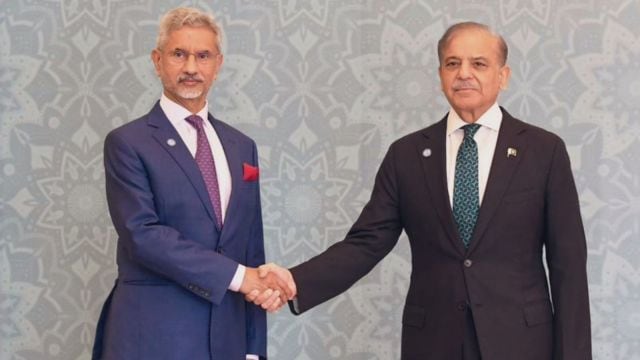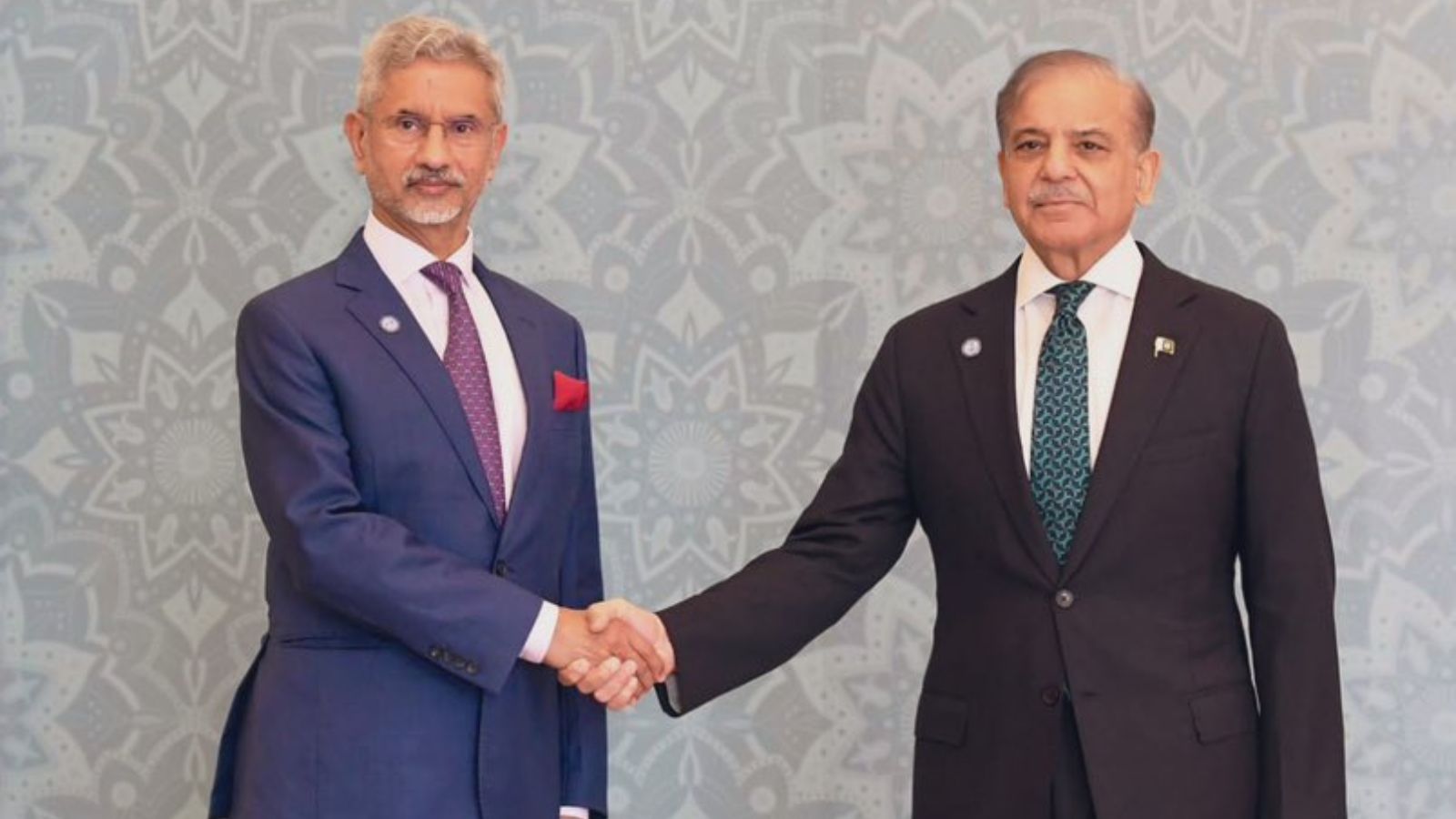
In being courteous towards each other and avoiding hostile rhetoric during External Affairs Minister S Jaishankar to Pakistan this week to attend a meeting of the Shanghai Cooperation Organisation, New Delhi and Islamabad appear to have set the stage for ending the prolonged chill in bilateral relations.
Some days ago, Jaishankar had declared that India’s Pakistan policy was not “passive” but will respond to any positive gestures from Pakistan. If the hopeful tone in Islamabad was not incidental but the result of quiet diplomacy behind the scenes, there could be more interesting developments on the bilateral front.
The optics of the Islamabad meeting — marked by civility – stand in contrast to the meeting of the SCO foreign ministers in Goa last year, when Jaishankar and his Pakistani counterpart did not even shake hands in public. The dark mood at the last encounter was amplified by the exchange of sharp words on terrorism and Kashmir between Jaishankar and Bilawal Zardari Bhutto.
This time, though, there were handshakes as well as informal conversations between Jaishankar and Pakistan’s foreign minister and deputy prime minister Ishaq Dar. This may have opened a window for the resumption of cricket links, as reported in The Indian Express, and several other “baby steps” the two sides could take to restore mutual confidence and create a conducive environment for the resumption of formal dialogue between the two nations that has remained in a deep freeze for nearly a decade.
It is one thing to start a dialogue and entirely another to sustain it. Many structural impediments have undermined several promising “fresh starts” in the bilateral engagement. One big question is this: what about the core concerns of the two sides—India’s emphasis on ending cross-border terrorism and Pakistan’s insistence that progress on Kashmir must precede movement in the rest of the relationship?
On his part, Jaishankar did use the founding charter of the SCO to refer to the “three evils” that bedevil the region – terrorism, separatism, and extremism – without referring directly to Pakistan. Instead of accusing Pakistan of supporting cross-border terror, Jaishankar called on it to reflect on the damage terror has done to the prospects for promoting connectivity and prosperity in the region.
Pakistan’s former prime minister Nawaz Sharif set a positive tone by reaffirming his well-known desire for normal ties between the two countries before Jaishankar arrived in Islamabad. His brother and current prime minister Shehbaz Sharif, seen as close to the Pakistan Army, however, was harping on Kashmir even a few days earlier. But he desisted from any reference to Kashmir in his formal remarks at the SCO. That does not mean Pakistan has changed its position on Kashmir.
Delhi and Islamabad have a long experience in managing each other’s core concerns and creating the space for the rest of the relationship to inch forward. We might be on the cusp of such a moment.
India’s restoration of Kashmir’s statehood in the near future might give a face-saver to Pakistan in climbing down from its unsustainable position on Kashmir. And if it reins in cross-border terror, India should be open to several small steps of confidence building–including the exchange of high commissioners, opening of modest trade links, and facilitating the movement of people across the border.
Before we get ahead of ourselves on the unlimited possibilities for bilateral exchanges for mutual benefit, we must note the congealed opposition on both sides to any unfreezing of the relationship. The negative voices, which have gained ground on both sides of the border over the years, have acquired a power of their own to derail diplomacy. It remains to be seen if Delhi and Rawalpindi have the capacity to manage the countless domestic spoilers in sustaining even a limited engagement with Pakistan.
The writer is contributing editor on international affairs for The Indian Express



